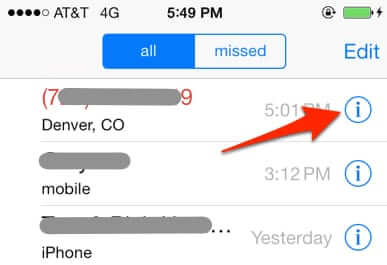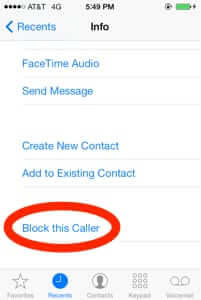
The “One Ring” and “Missed Call” cell phone scam is becoming more common. According to both the FTC and the FCC, the way this works is that you will get a call from a number that you don’t recognize, starting with what seems to be a U.S.-based area code, such as 809, 876, 649, 268, 473, or 284. The scam is that when you call back to see who it is trying to reach you, you are actually connected to an international “pay per minute” or “pay per call” line, that will run up your phone charges.
As it turns out, there are nearly 200 three-digit country codes that look like U.S.-based three-digit area codes. So far the scams seem to come from 284 (the British Virgin Islands), 268 (Antigua), 473 (Grenada), 876 (Jamaica), 659 (Turks and Caicos Islands), and 809 (the Dominican Republic). You can see a full list of international calling codes here.
According to both the FTC and the FCC, in warnings issued a few months ago, sometimes the scammers will leave voicemail under some pretense, urging you to call back.
Explains the FCC in their One Ring Wireless Scam warning, “If you return the phone call, you may be connected to an international hotline that can charge a fee just for connecting, along with significant per-minute fees if they can keep you on the phone. These charges may show up on your bill as premium services.”
The FTC, in their own warning about the one-ring and missed-call cell phone scam, advises that “If you get a call like this, don’t pick it up and don’t call the number back. There’s no danger in getting the call; the danger is in calling back and racking up a whopping bill.” The FTC adds that if you did fall victim to it, you should “try to resolve the charges with your cell phone carrier. If that doesn’t work, file a complaint with the Federal Trade Commission and the Federal Communications Commission.”
The Internet Patrol is completely free, and reader-supported. Your tips via CashApp, Venmo, or Paypal are appreciated! Receipts will come from ISIPP.
There are several ways to protect yourself against this scam:
- Don’t return calls from numbers that you don’t recognize. By definition, if they are calling your cell phone, they can leave a message. If it’s important, they will call back, and they will leave a message.
- If you never make international calls otherwise, ask your carrier to block your line from being able to make international calls.
- If you get a call from one of these numbers, block it from even showing up in your calls or missed calls. That way you (or someone using your phone) won’t be tempted to return the call.
To block calls on an iPhone, go to your recent calls list, and tap on the “i” in the circle next to the number that you want to block:
Click on “Block this Caller”:
Even though the confirmation says “Block Contact”, the number you want to block does not need to be an actual contact (i.e. they don’t need to be in your “Contacts” in your address book).
What you need to do to block calls on an Android phone is not universal, as it can depend on the make of your phone, and the flavor of Android. However there is a good tutorial for the various ways to block numbers on an Android phone at GottaBeMobile.com.
If you have fallen victim to the one-ring, missed call scam, you can also file a complaint with the FCC here.
The Internet Patrol is completely free, and reader-supported. Your tips via CashApp, Venmo, or Paypal are appreciated! Receipts will come from ISIPP.











